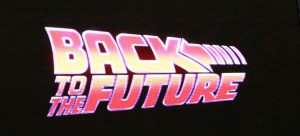UPDATE, Sept. 18 at 6:42 p.m. ET: NBC Universal released a statement shortly after publication that an agreement had been reached between Roku and itself. “We are pleased Roku recognizes the value in making NBCUniversal’s incredible family of apps and programming, including Peacock, available to all of their users across the country. More than 15 million people signed up for Peacock since its national launch in July, and we are thrilled millions more will now be able to access and enjoy Peacock along with other NBCUniversal apps on their favorite Roku devices,” the statement reads. “Roku’s incredible reach will not only help us ensure Peacock is available to our fans wherever they consume video but continue to expand NBCUniversal’s unrivaled digital presence across platforms.” The original story continues below:
————
Videos by PopCulture.com
The ongoing dispute between Roku and NBCUniversal over Peacock remains stuck at an impasse, and it took a new turn on Thursday. As soon as Friday night, 11 national NBC “TV Everywhere” apps could disappear from Roku devices, making it impossible for pay-TV subscribers to access NBCUniversal content. Apps for NBC-owned and Telemundo-owned local stations could also disappear for Roku users.
Comcast, NBCUniversal’s parent company, is pulling the channels “in order to try to force Roku to distribute its new Peacock service on unreasonable terms,” a Roku spokesman said in a statement to Variety. “While the NBC TV Everywhere apps represent an insignificant amount of streaming hours and revenue on our platform, we believe they are important to those consumers who use them, especially when so many Americans are at home.”
In response, NBCU said it was “disappointed” that Roku was removing the apps provided to pay-TV subscribers at no extra cost. In addition to the 11 national apps being cut, 12 NBC-owned station apps and 23 Telemundo-station apps will be unavailable. “Roku’s unreasonable demands ultimately hurt both their consumers and their consumer equipment partners to whom they’ve promised access to all apps in the marketplace,” an NBCU spokesperson said.
NBCU had a distribution deal with Roku for the TV apps, but it was allowed to expire at the end of last month. Roku offered to renew the contract under the current terms, but Comcast declined, Roku said. “Comcast has declined our extension offer and so far has also refused fair and equitable business terms for the distribution of Peacock — even though they stand to generate hundreds of millions of dollars in advertising revenue from its distribution on the Roku platform,” a rep said.
Peacock launched on July 15 but remains unavailable on Roku and Amazon Fire TV, two of the most-used streaming platforms in the U.S. The issue between NBCU and Roku is advertising revenue since NBCU is offering a free, ad-supported version of its streaming app. Roku claims Peacock will not allow Roku any input on its advertising. Roku usually asks for 30% of advertising inventory, and the company offered NBCU a smaller split for Peacock, but NBCU has refused. A source familiar with NBCU’s position told Variety Roku often changed requirements for adding Peacock, and they are willing to make some concessions when it comes to advertising revenue.
Peacock is available to consumers in three tiers, two of which are ad-supported. Premium Free is the basic tier and includes ads. For $4.99, viewers can subscribe to Peacock Premium, which provides for more content and ads. There is also a version of Peacock Premium without ads for $9.99. Comcast Xfinity X1, Cox Conour, and Flex customers can get Peacock Premium with advertisements for free or without ads for an additional $5/month on their subscription bill.
Most Viewed
-

SYDNEY, AUSTRALIA – FEBRUARY 26: Drag Icon Maxi Shield poses against the cycle way construction site (along Mardi Gras parade route on Oxford ) on February 26, 2025 in Sydney, Australia. The Sydney Gay and Lesbian Mardi Gras parade will return to Oxford Street for the 47th time. The parade began in 1978 as a march to commemorate the 1969 Stonewall Riots in New York and has been held every year since to promote awareness of gay, lesbian, bisexual and transgendered issues. (Photo by Don Arnold/WireImage)







